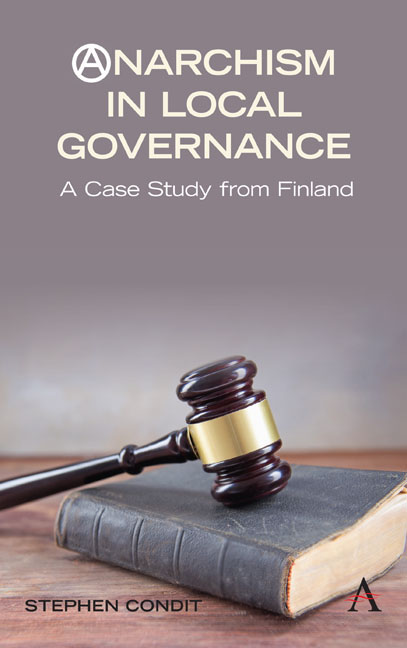Book contents
- Frontmatter
- Dedication
- Contents
- Acknowledgements
- Chapter One Introduction: The Prospects of My Situation
- Chapter Two Evoking Anarchism
- Chapter Three Municipal Possibilities of Anarchist Praxis
- Chapter Four The Impossible Ideals of Libertarian Municipalism
- Chapter Five A Municipal Expedient for Anarchists
- Chapter Six Latent Anarchism in Citizen Associations
- Chapter Seven An Equivocal Vindication
- References
- Index
Chapter Two - Evoking Anarchism
Published online by Cambridge University Press: 06 September 2019
- Frontmatter
- Dedication
- Contents
- Acknowledgements
- Chapter One Introduction: The Prospects of My Situation
- Chapter Two Evoking Anarchism
- Chapter Three Municipal Possibilities of Anarchist Praxis
- Chapter Four The Impossible Ideals of Libertarian Municipalism
- Chapter Five A Municipal Expedient for Anarchists
- Chapter Six Latent Anarchism in Citizen Associations
- Chapter Seven An Equivocal Vindication
- References
- Index
Summary
In this interrogation of my possible contribution to anarchism through local governance, I must initially accept the restrictions of the municipal system's practicalities. I hope to transcend them in due course, but I cannot make a convincing case by forcing my narrative into a structured theory of anarchism or dogmatically interpreting the practicalities to validate such a theory. I encounter difficulties enough in comprehending any fact of my public career as a demonstration of anarchism and deriving from it plausible justifications of my career. I must work towards justification with circumspection. To the extent that anarchist praxis seems impossible or irrelevant in my situation as either a normative purpose or heuristic analysis, I must eventually both reinterpret the facts of my situation and reformulate my anarchist convictions in order to explicate their reciprocal relevance. This necessitates empirical selectivity and may entail the loss, somewhat, of theoretical coherence.
I have not been without theoretical context. Elsewhere I have attempted to formulate some elements of a practical theory of anarchism, and this has informed my comprehension of my political and associational participation. At the heart of my reflections is an ethical commitment to what ought to be, and therefore what might be and can be, in circumstances apparently inhospitable to such a commitment. From this follows a stipulation of potentiality as a fundamental cause of freedom and an obligatory norm of communality as a teleological ideal. The ideal entails expressive rationality, moral imagination and causal volition engaged to the project of self-governance, which is not reducible to individuality or rather to the forms of individualism sanctioned by the statist ruling order (Condit 1987, 15– 36). I have frequently been dissatisfied with my demonstration of individuality, uneasy that it can be justified as significant. My motivation to a public career has seldom been a pursuit of my uniqueness, or evidence of it. Particular modes of communality entailing an obligation to self-governance may be prefigured in this framework. Each person is enjoined to assume the duty of being a self-governing cause of society. On these grounds, for example, I have stood as a candidate in local and national elections, and served in office when elected, and participated in voluntary citizen associations. But I have not admitted my career to be a quest for individuality.
- Type
- Chapter
- Information
- Anarchism in Local GovernanceA Case Study from Finland, pp. 11 - 58Publisher: Anthem PressPrint publication year: 2019



